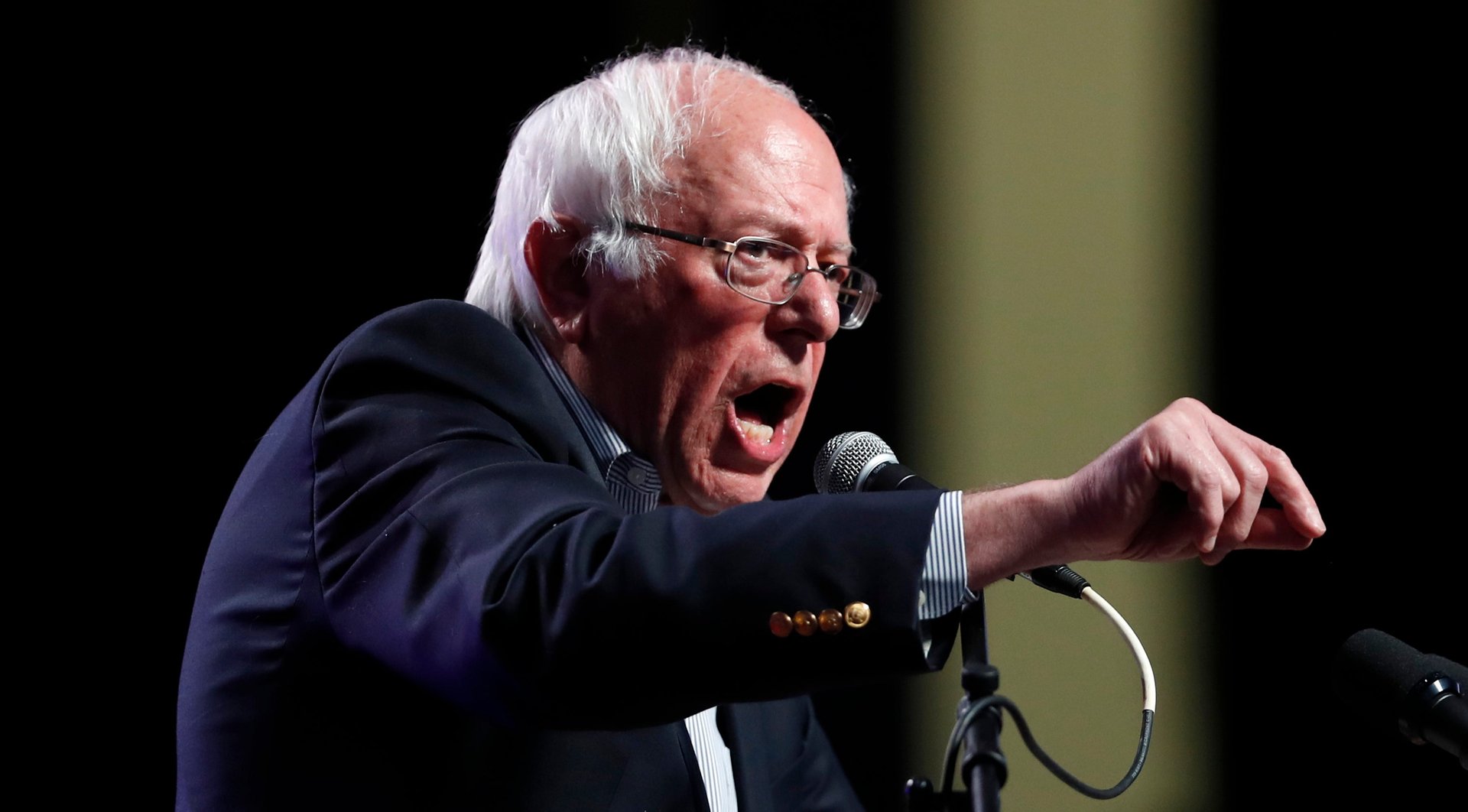The Democrats need a plan, and fast, if they ever want to be a governing party again
Having lost a general election in the most embarrassing fashion last November for the entire world to see, the Democratic Party is gearing up for an assessment about what it needs to do to become relevant to key constituencies again. This is never a smooth or pain-free experience for any party to go through, but it’s critical if it hopes to recover some of the ground that was lost ahead of the 2018 midterm elections.


Having lost a general election in the most embarrassing fashion last November for the entire world to see, the Democratic Party is gearing up for an assessment about what it needs to do to become relevant to key constituencies again. This is never a smooth or pain-free experience for any party to go through, but it’s critical if it hopes to recover some of the ground that was lost ahead of the 2018 midterm elections.
In 2012, after president Barack Obama’s resounding re-election over GOP nominee Mitt Romney, the Republican National Committee did something similar to what the Democratic National Committee is doing now: being honest with itself; trying to determine why it lost so many white, working-class voters in the midwest; and attempting to extrapolate from the results to make sure that Democratic candidates in the next election cycle highlight the right issues.
The DNC’s coming-together, however, has been a little more awkward than most. Vermont senator Bernie Sanders, still riding high after an impressive performance in the Democratic primaries last year, has been an asset and a liability for Democrats. The question that members of the DNC, Democratic lawmakers, and party operatives all need to ask themselves is whether the party establishment—those who typically espouse left-of-center policies on everything from healthcare and foreign policy to defense spending and immigration—can incorporate the very same activist, loud, progressive base that catapulted a democratic socialist in his mid-70’s to international fame.
We talk a lot about the Republican Party being divided amongst multiple factions. True enough. The GOP is a big-tent party, where conservative firebrands in the House Freedom Caucus, moderate Republicans in the Tuesday Group coalition, national security minded hawks like John McCain, and establishment titans like Mitch McConnell all compete for their priorities.
But the Democratic Party isn’t exactly a happy family right now either. Bernie’s primary campaign against Hillary Clinton was certainly a shock to me and to many pundits who study US politics for a living. But it was practically shock-therapy for a Democratic Party establishment that long viewed the progressive movement as a bunch of people high on ideals but short on strategy to achieve them. Although Sanders ultimately lost the nomination, he received 46% of the pledged delegates—far more than many seasoned political analysts would have thought possible when he held a hastily-arranged press conference in front of the Capitol to announce his campaign.
The irony of this entire story is despite Clinton claiming the hard-fought nomination, it’s Sanders’ wing of the party that now has the momentum. Tom Perez, the DNC’s new chairman, is putting his best foot forward in convincing people that the Democratic Party is raring to go for 2018 and is far more unified thanks to president Trump. But the “Come Together, Fight Back” mantra only goes so far when the man who holds a lot of the power—Bernie Sanders—doesn’t think twice about going on television and railing against how terribly Democrats performed during the last election cycle. ”I think what is clear to anyone who looks at where the Democratic Party today is that the model of the Democratic Party is failing,” Sanders told CBS’s John Dickerson last Sunday. “Clearly the Democratic Party has got to change. And in my view what it has got to become is a grassroots party.”
It would be comforting for the DNC to ignore these words as the ravings of a socialist lunatic or the ramblings of somebody who isn’t even a registered Democrat to begin with. But the fact is that the mood of the country jives perfectly with what Bernie Sanders is saying publicly. The American people are so angry with politicians, elites, and institutions of all shapes and sizes that the DNC—another institution—doesn’t have the luxury to avoid the lessons of last year’s race. It’s very hard for establishment, traditional Democrats to argue that Sanders is going overboard when 67% of Americans in a recent ABC News/Washington Post poll believe that the Democratic Party is out of touch with the people.
Something needs to change. Perhaps a greater focus on economic concerns of the white, working class who blew Clinton out of the water last year? Maybe an emphasis on social justice issues without diving knee-deep into typical identity politics? Perhaps a greater amount of attention needs to be devoted towards convincing Americans that Democrats are just as strong on national security as Republicans are?
Whatever the solution is, the Democratic Party must find a way to balance the necessity of driving Bernie and Warren-loving progressives to the polls to vote for Democratic candidates, without turning off the old-guard, big-money donors who are generally more cautious about what can be achieved in Washington. Democrats will need enthusiastic support from both the progressive and moderate wings if they want to be a governing party once again.